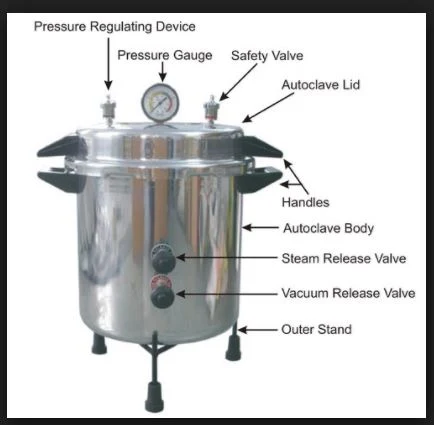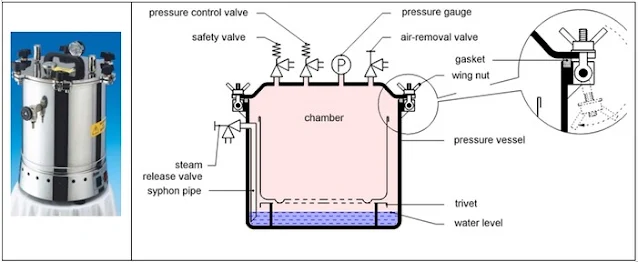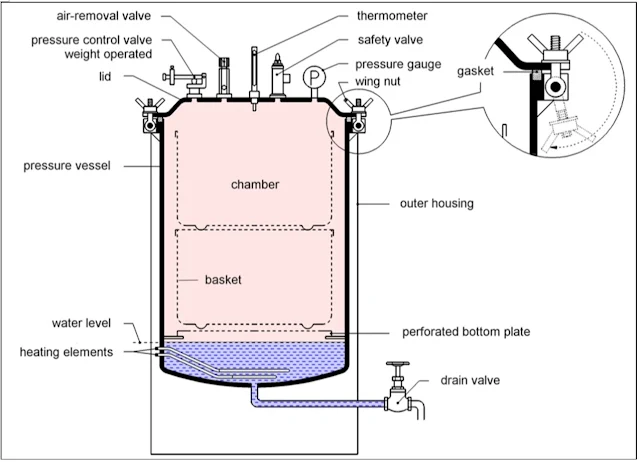What is Autoclave
- An autoclave is a device that uses steam under pressure to kill bacteria, viruses, and even spores.
- An autoclave, also known as a high-pressure steam sterilizer, uses a pressure vessel to sterilize products under saturated steam pressure.
- Compared to dry heat sterilization, high-pressure steam sterilization has the advantage of shortening the sterilization time due to its strong sterilizing power.
- Autoclaves are versatile and can sterilize various items including glass products, porcelain, metals, liquids, rubber, paper, textile products, water, and culture media. However, it's crucial to check the heat resistance of the sample before autoclaving.
Guidelines for using an autoclave:
The sterilization time is determined by standards and varies based on the sample temperature range:
Sample temperature (temperature range) Sterilization time
115℃ (0 to +3℃) 30 minutes or more
121℃ (0 to +4℃) 20 minutes or more
126℃ (0 to +4℃) 15 minutes or more
132℃ (0 to + 4℃) 5 minutes or more
135℃ (0 to +5℃) 3 minutes or more
It's important to consider the delay in the sample reaching the desired temperature during the heating process when setting the device. Using biological or chemical indicators is recommended to confirm sterilization completion.


